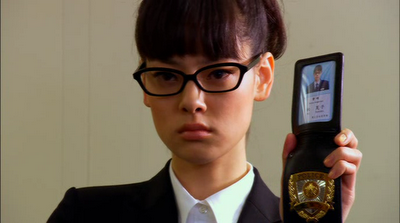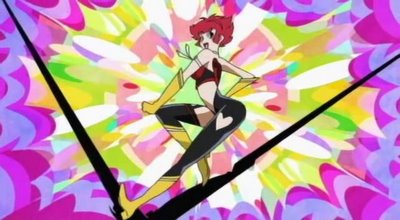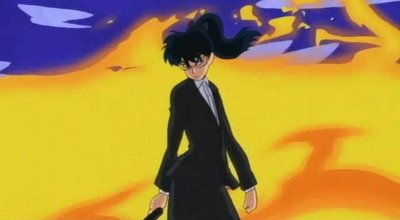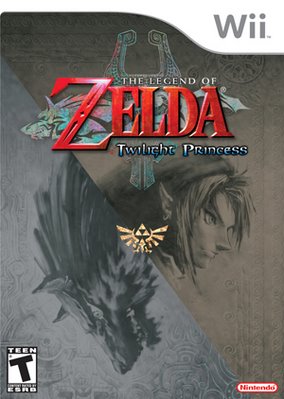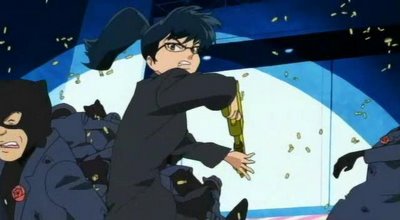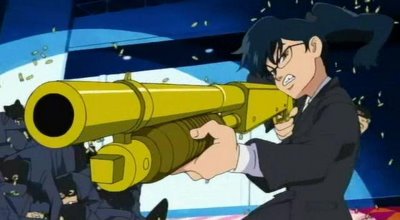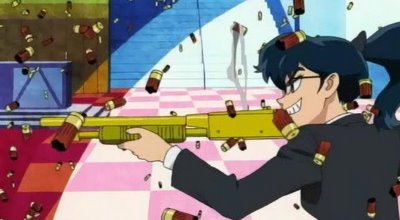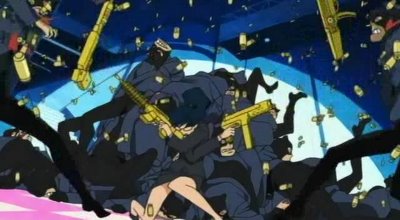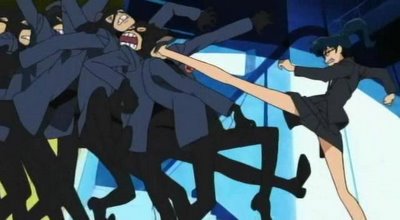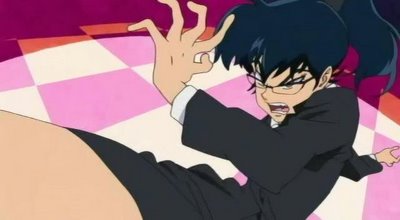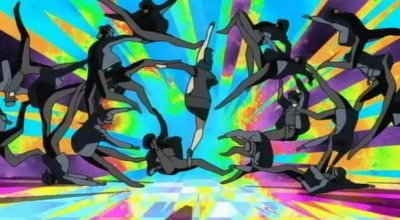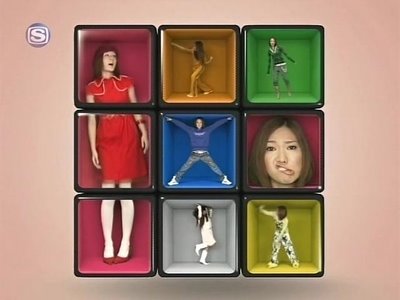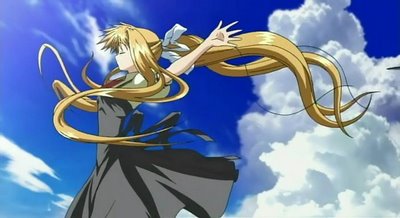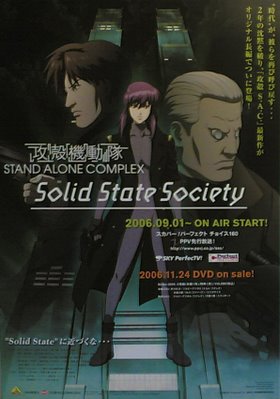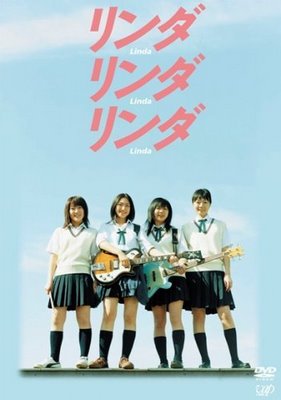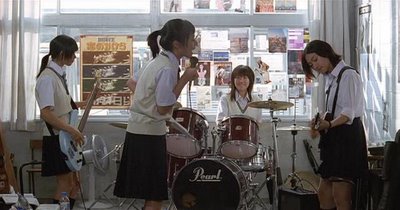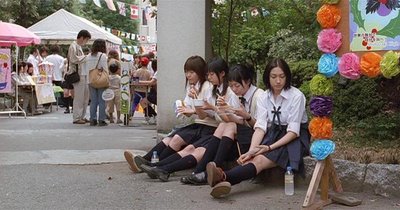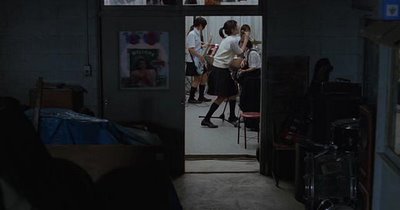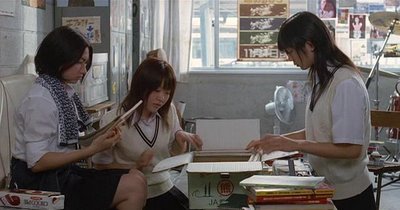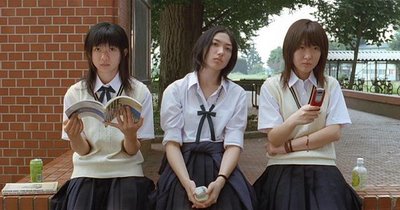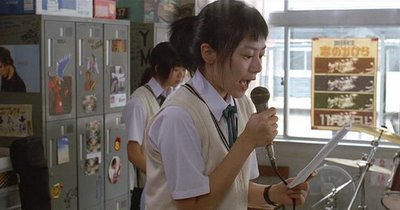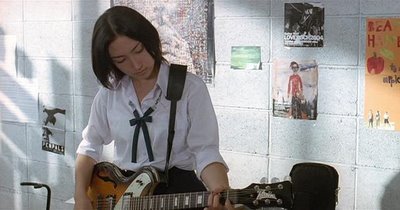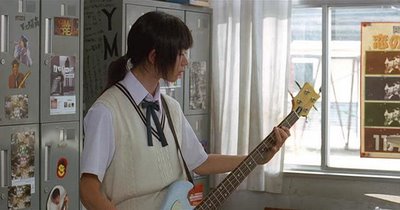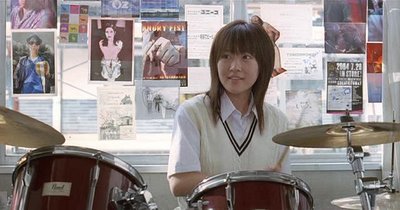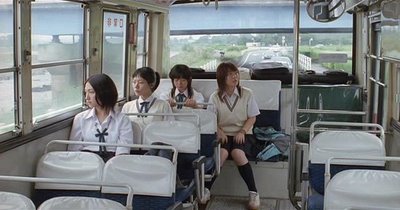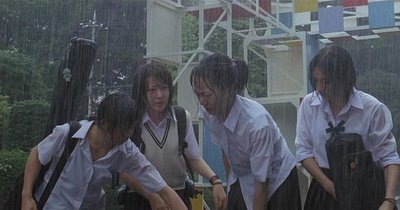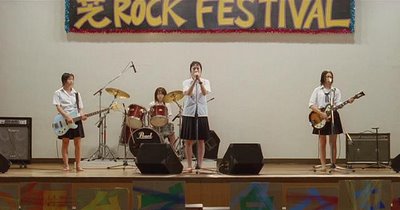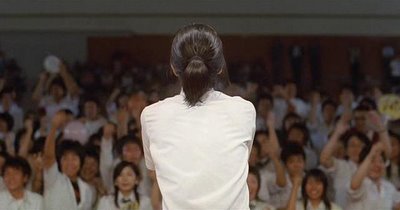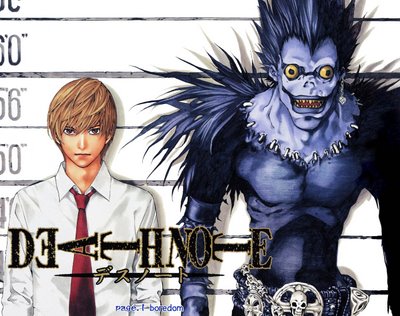Cutie Honey
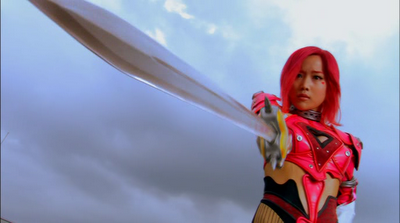
The movie itself, however... Well, it's silly. Very, very silly. Too silly, in fact. I mean, I don't expect serious drama from the Cutie Honey franchise, but a lot of this film is just way over the top. I might call it "cartoonish," except for the fact that the anime version of this same story is actually less ridiculous.
Of course, the goal of this movie is to be entertaining, and it is most certainly that. People running about in rubber suits and spandex is almost always amusing, and the playful theatricality of the whole thing is good for a few smiles. With a cast of colorful villains and likable heroes, big action sequences and a bunch of off-the-wall ideas (like random musical numbers), it's definitely a spectacle.
However, the best part of the film isn't found in spectacle, but rather in the three main characters. They are the reason that the movie works at all. They infuse it with heart, provide the most amusing scenes, and even give the story some unusually emotional moments.
Eriko Sato is a very good Honey, not quite as sweet or earnest as her anime counterpart, but with more playfulness about her. She's fun to watch, and her interactions with the people around her are more interesting than the actual story. It would have been nice if the film had focused more on her struggle with loneliness and the complexities of her emotion-fueled superpowers, but that was a job left to the anime series.
In addition to Sato's Honey, you've got Mikako Ichikawa as...
...as...
...as...
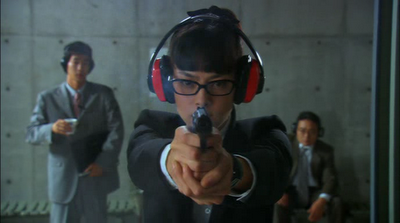
...mmmmmmnatsukooooooo...
*Ahem*
As Natsuko. Yes. I wasn't sure how super-cool policewoman Natsuko would come across in live-action mode, but I am pleased, so very pleased, to say that Ichikawa is basically her in every respect, albeit more vulnerable and less apt to randomly blow things up with a bazooka. Otherwise, she's perfect, which means that I can now safely declare my love for a character portrayed by a real person rather than a bunch of drawings. That is at least somewhat less creepy, I think.
Finally, there's Jun Murakami as the playful secret agent Seiji, who takes more of an active role in the story here than he does in the anime series. He's the kind of character that doesn't take anything too seriously but can really get a job done when it needs doing. He acts as a grounding and connecting factor between both Honey and Natsuko, and helps them both out in ways that they don't necessarily realize at first.
Other nice aspects of the film include its snappy soundtrack, its complete lack of pretense and the way it attempts to capture the feel of the anime series. I also enjoyed the presence of the crazy-voiced Mayumi Shintani (who was both Haruko and Tsubasa...how's that for awesomeness?) as one of the villains.
Unfortunately, the good parts of this movie are dragged down somewhat by the overall absurdity of the whole thing. A lot of the scenes had me laughing, in the bad way, at how preposterous they were. The villains are so zealously over-acted that the film sometimes feels like a Power Rangers episode. It's obvious that the performers are having fun and are really committing themselves to their parts, but that doesn't mean they're making great art.
The special effects aren't particularly great either. I know that the budgets for Japanese films are generally minuscule compared to their American counterparts, but still, I've seen much better effects work than this from Japan. There's some neat looking stuff here, but a lot of the visuals are subpar.
So, while this version of Cutie Honey has a few things going for it, it also has some glaring flaws. Half good and half bad is a 5 in my book, and that's what I'll give it. Watch Re: Cutie Honey to get the superior anime version, and only check this out if you're a big fan of Cutie Honey in general or if you're just curious to see live-action Natsuko (and I doubt you'll be disappointed in that regard).
Score: 5/10 (Not Bad)
Labels: Film
